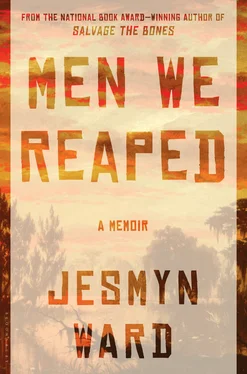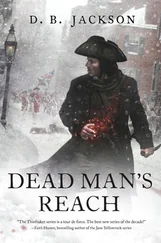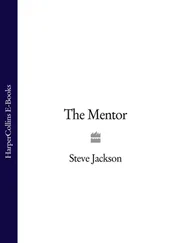We sat with Demond’s fiancée, a widow at my age, her face swollen, red-tinged underneath the black. She smoked cigarette after cigarette.
“I didn’t hear anything,” she said. “Nothing.”
She said it as if the fact that she hadn’t heard the gunshot meant it couldn’t have happened. We did not know then that the police would conduct an investigation for a few months, post signs at the local gas stations near the interstate asking for any information about Demond’s murder. We did not know the murderer would remain faceless, like the great wolf trackless in the swamp, and the police’s search would be fruitless.
On the day after Demond died, I sat on his concrete porch steps. When the sun set, the coven of bats that lived in Demond’s roof burst from the vents and out into the night in a black, squeaking mass. Where we had parked and drank and gotten high on Demond’s lawn, now there was yellow police tape draped from pine to pine, circumventing the mimosa. It read: CAUTION. Nerissa smoked, exhaling clouds into the cold air, the skin dry at the sides of her mouth, and I wondered who had come out of the dark and killed Demond. Even as I knew the figure that had waited hidden for him in the shivering pockets of the trees was human, I wanted to turn to Nerissa and ask her: What do you think it is? What?
We Are Wounded, 1984–1987
My mother, my father, Josh, Nerissa, and I moved from the small house in the big field to a cream and yellow single-wide trailer in DeLisle on a dead-end red-dirt road. The road was mostly wooded, but there was a cluster of houses near the dead end, and each of those houses contained boys whom I would be friends with for the rest of my life. I was seven then. Joshua and I and the boys spent our days swinging from my father’s punching bag, which he’d hung from a pecan tree in the front yard, having mud fights, running races down the middle of the road, picking unripe pears by the wagonful from my aunt’s house farther down the street and eating so many we grew sick. I thought my parents were mostly happy then, but now I know my own happiness blinded me.
One day my father came home with a motorcycle. It was a Kawasaki Ninja, new, red and black, glossy.
“Stay off of it,” my father said. “You can’t play on it.”
“It’s yours?” I asked.
“Yeah,” my father said. Then he squatted next to me, pointed to the silver parts on the machine near the steel bars where he rested his feet, and said, “You see them things there?”
I nodded.
“They get so hot that they can burn you. That’s why you can’t play on it.”
“Yes, sir,” I said. My parents taught me and my siblings that we should address them that way, with polite deference, when they gave us commands.
My mother was quiet. She pushed her glasses, thick and wide in the style of the day, overpowering her small, beautiful face, up her nose. She sniffed, and a frown nicked the side of her mouth. She looked away and then walked back into the house, slamming the door. When we followed my father into the house after loitering around the bike, after watching my father rub it down with a cotton cloth, polish the metal, listening to the faint ticks the machine made as it cooled down, my mother was cooking. She said nothing to my father, but her back was a shut door. I was a child; there was much I did not know. I did not know my father had taken funds he’d been saving, at my mother’s insistence, to buy land, and had purchased his motorcycle with them. I did not know that his own father, my grandfather Big Jerry, who had been quite a playboy in his day but a devout caretaker to his children, had told my father: You can’t ride a wife and three kids on a goddamn motorcycle .
“Go take a bath,” my mother told us. We went.
After little more than a year, the neighbors we were renting the trailer from decided to rent it to their relative instead. We moved across DeLisle to live with my grandmother Dorothy. I was eight. This was the house my mother grew up in, the same house some of her siblings had been born in. It was long, finished with wood siding, and set low to the ground, elevated on two cinder blocks in the front and three in the back, as it was built on a hill. Originally it had had a sizeable living room, a narrow kitchen, a small dining room, a bathroom, and two bedrooms. After my grandfather left my grandmother for another woman, she raised the seven children they’d had together on her own. She added two large bedrooms and a bathroom to the house. She took what my grandfather left her with, and she built it into something more, and she survived.
This is a common refrain in my community, and more specifically in my family. I have always thought of my family as something of a matriarchy, since the women of my mother’s side have held my nuclear family and my immediate family and my extended family together through so much. But our story is not special. Nor had it always been this way. It used to be that the Catholic Church was a strong presence in my community and divorce unheard of; men did not leave their women and shared children. But in my grandmother’s generation, this changed. In the sixties, men and women began to divorce, and women who’d grown up with the expectation that they’d have partners to help them raise their children found themselves with none. They worked like men then, and raised their children the best they could, while their former husbands had relationships with other women and married them and then left them also, perhaps searching for a sense of freedom or a sense of power that being a Black man in the South denied them. If they were not called “sir” in public, at least they could be respected and feared and wanted by the women and children who loved them. They were devalued everywhere except in the home, and this is the place where they turned the paradigm on its head and devalued those in their thrall. The result of this, of course, was that the women who were so devalued had to be inhumanly strong and foster a sense of family alone. This is what my grandmother did.
When we moved into her house, every one of my mother’s siblings, their children, and my own nuclear family lived there. There were thirteen of us: my four bachelor uncles, my two aunts, who each had one son at the time, my grandmother, my father, my mother, Nerissa, Joshua, and me. My uncles slept two to the two smaller bedrooms, and my grandmother kept the master bedroom in the back with the bathroom. My aunts slept in the other, larger, more recently added bedroom in the rear of the house; the room was so large there were two double beds there, so each aunt shared a bed with her child. My brother and I slept on bunk beds shoved into a corner of that room. I took the top bunk, and my brother took the bottom. My mother and father nailed a curtain over the dining room door, moved the dining table into storage, and moved their own double bed in, where they slept with Nerissa and, after she was born in 1985, Charine. For the next two years I would have most of the people I loved living in one house, which was mostly wonderful for us kids, and a horrible strain for all of the adults, driven as they were to my grandmother’s house by Reagan’s policies in the eighties, which undercut whatever shaky economic footing the poor had, and depressed the listless southern economy.
By the time we’d moved into that rambling, lopsided wooden house, I’d already fallen in love with reading. I think my love for books sprang from my need to escape the world I was born into, to slide into another where words were straightforward and honest, where there was clearly delineated good and evil, where I found girls who were strong and smart and creative and foolish enough to fight dragons, to run away from home to live in museums, to become child spies, to make new friends and build secret gardens. Perhaps it was easier for me to navigate that world than my home, where my parents were having heated, whispered arguments in the dining room turned bedroom, and my father was disappearing after those arguments for weeks at a time to live at his mother’s house in Pass Christian before coming back to us. Perhaps it was easier for me to sink into those worlds than to navigate a world that would not explain anything to me, where I could not delineate good and bad. My grandmother worked ten-hour-long shifts at the plant. My mother had a job as a maid at a hotel. My father still worked at the glass plant, and when he was living with us, he would often disappear on his motorcycle. My youngest uncle was in high school, but the other uncles worked, as did my aunts. There was often only me, Josh, Aldon, who slept in one of the double beds in that back bedroom with his mother, and a lone uncle who was off for the day in the living room, watching a movie on PBS, one of the two channels we had. Sometimes my two aunts were in the kitchen, sweating over pots the size of my torso filled with bubbling beans, making biscuits for the family from scratch. “Go outside and play,” we heard. So I put my books away for a moment and went outside to play with Joshua and Aldon.
Читать дальше












